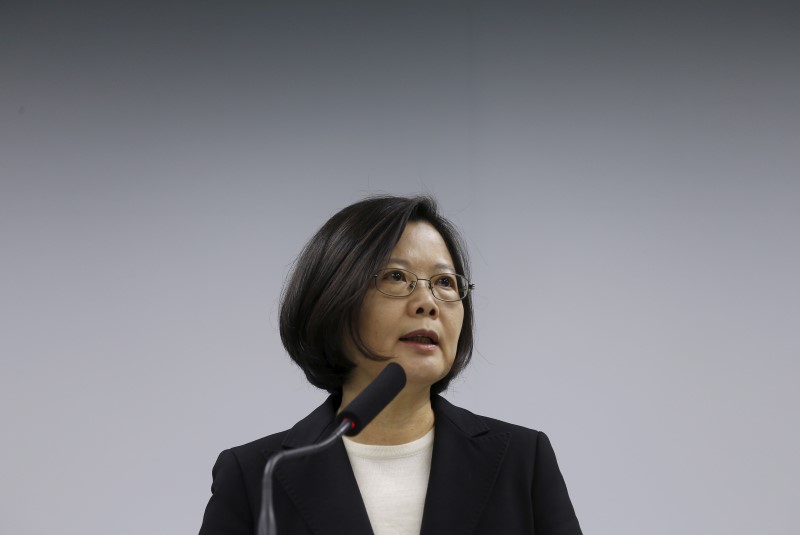BEIJING (Reuters) - Taiwan's president-elect's pledge to maintain the status quo with China is "empty talk" unless she recognises the self-ruled island as part of China, the country's top newspaper said, as Beijing keeps up the pressure ahead of her inauguration.
China regards democratic Taiwan as a wayward province to be taken back by force if necessary and wants the new government to stick to the "one China" policy agreed upon with the outgoing China-friendly Nationalist government.
Beijing distrusts Tsai Ing-wen's Democratic Progressive Party (DPP), which it believes supports formal independence for Taiwan. Tsai assumes the presidency on May 20 after winning a January election by a landslide.
In an editorial to be published on Thursday, but carried on Wednesday evening by the official Xinhua news agency, China's ruling Communist Party's People's Daily described current relations between China and Taiwan as "turbulent".
Taiwan stands at a critical juncture of either accepting what is called the "1992 consensus" - referring to Beijing's cherished "one China" principle that includes Taiwan as part of China - or taking an unclear stance and refusing to abandon support for Taiwan independence, the paper said.
"Since 1949, though the two sides of the Taiwan Strait are yet to be unified, the reality that the mainland and Taiwan both belong to one China has not changed, and cannot change," it said.
Defeated Nationalist forces fled to Taiwan at the end of a civil war with the Communists in 1949.
Tsai has always said she will maintain the status quo with China but has not elaborated on how she will engage Beijing beyond broad principles.
She said again last month she will maintain the status quo, but that her policy will be based on democratic principles and transcend party politics.
Her predecessor, the outgoing President Ma Ying-jeou of the Nationalists, signed landmark trade and economic agreements with China and had a historic meeting with Chinese President Xi Jinping in neutral Singapore last year.
The People's Daily said denying the "1992 consensus" would inevitably cause a change in ties with Taiwan.
"The so-called 'maintenance of the status quo' promised by Taiwan's newly elected leader is only empty talk," it added. "The responsibility for the consequences caused can only be accepted by the DPP authorities."

Only the most important People's Daily editorials are released the night before they appear in the newspaper, in a sign of the importance the party attaches to Taiwan.